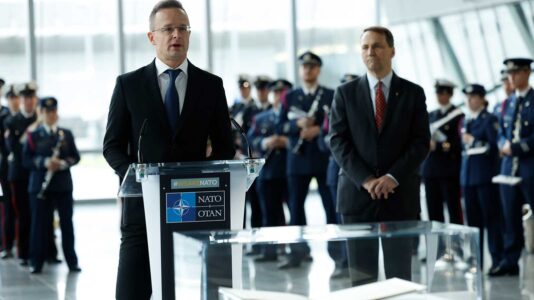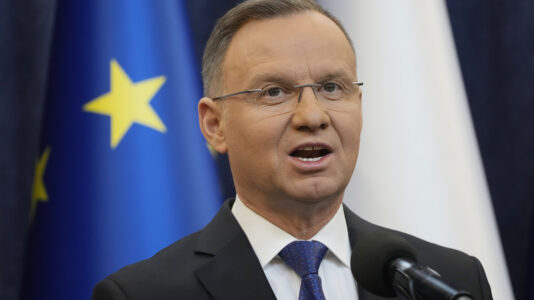Romanian President Klaus Iohannis‘ candidacy for NATO is legitimate, Slovak Foreign Minister Juraj Blanar said in Brussels on Thursday, but did not extend his remarks to a direct endorsement of the Romanian president’s candidacy.
Instead, he stated his intention to wait and see how the two lead candidates, Iohannis and former Dutch Prime Minister Mark Rutte, intended to protect the security interests of Central and Eastern European countries.
“Slovakia is serious about approaching the subject of the future head of NATO, and I expected more openness and empathy from the member states towards the demands of the countries in Eastern Europe because these countries are most exposed to the conflict in Ukraine,” Blanar said on the sidelines of the NATO meeting.
“We expected much more discussion about our interests,” Blanar said in reference to the Bucharest-9 countries of Romania, Poland, Hungary, Bulgaria, Czech Republic, Slovakia, Estonia, Latvia, and Lithuania.
“We didn’t have a reasonable candidate until Mr. Iohannis presented his candidacy. It is a legitimate candidacy. Our position is very clear. We want to hear how both candidates want to protect our security interests. The issue of anti-aircraft protection is particularly important for Slovakia because since April 1, we have not been protected by any air system, after Italy withdrew its temporary anti-aircraft battery,” explained the head of diplomacy in Bratislava.
He said he wanted to see how Klaus Iohannis or Mark Rutte, “whoever it will be,” would solve the problem, adding that his country would hold bilateral talks with the Netherlands because it also had an anti-aircraft system it withdrew from Slovakia.
“We assume that we will reach a joint agreement before the summit in Washington,” the Slovak minister said when asked about the timeframe for deciding on the new secretary-general.
Czech Minister Jan Lipavsky said he was in favor of appointing Mark Rutte as head of NATO, although his country did not express a clear position at the meeting of NATO foreign ministers either.
Asked whether he was for or against Klaus Iohannis’ candidacy, he said in a briefing on Thursday that no such vote had been reached at the ministerial meeting on Wednesday and Thursday. Lipavsky expressed hope that the process of electing a new NATO secretary-general would be completed at the latest at the Prague informal meeting of foreign ministers at the end of May, or at the very latest at the NATO summit in Washington.






